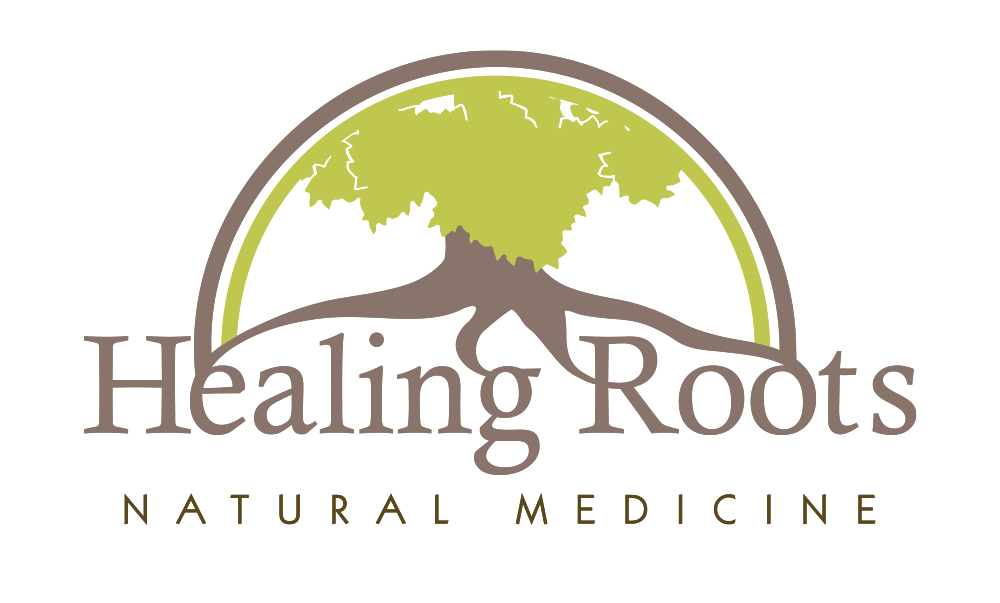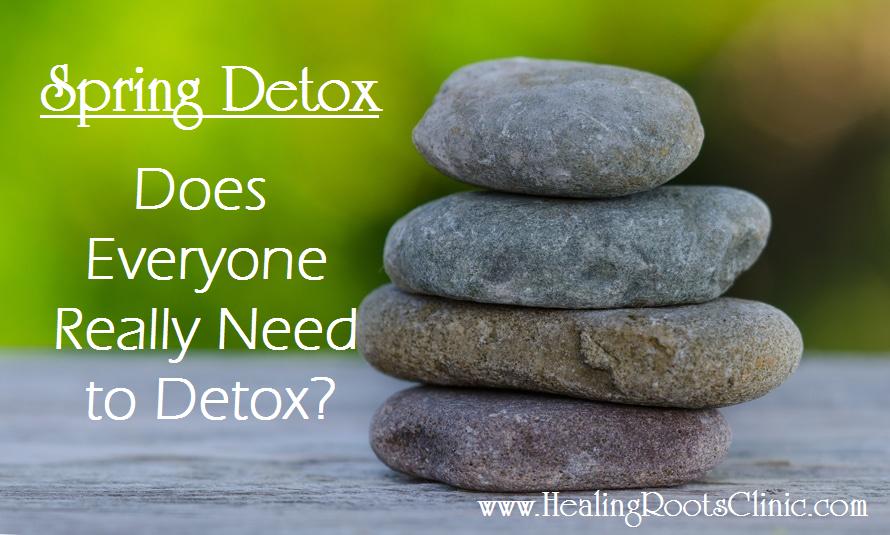 One popular FAQ I often see in health advice columns is: “Do I need to detox?”
One popular FAQ I often see in health advice columns is: “Do I need to detox?”
The answers usually range from “No, your body does this all on its own” to “Yes, everyone needs a juice fast and colon cleanse at least twice a year.” Since the answers run the gamut from one side of the spectrum to the other, let’s walk through an exercise I take all my new patients through to help you decide what the true answer is for you.
Consider a typical person’s normal day. She wakes up each morning after having slept for (hopefully) 8 hours on a standard mattress. Unless she has gone out of her way to buy an organic mattress, her regular mattress has been made with chemicals that are likely letting off Volatile Organic Compounds (VOCs) into the air she is breathing. Next to her bed are probably a couple of nightstands made primarily of particle board that contains formaldehyde. She’s been sleeping on sheets washed with a big brand-name laundry detergent laden with chemicals you don’t recognize and certainly wouldn’t want to swallow. Then the bedsheets were put in the dryer with scented (and carcinogenic) dryer sheets. This is a quick sketch of the environment she’s been sleeping in all night. And it might not be that dissimilar from the one you slept in last night.
Now she’s up and showering in chlorinated water and using shampoos, conditioners, soaps, and body washes that probably contain more than a handful of chemicals. And let’s not forget about the cleaning products that were used to clean that shower. Then she puts on lotion, hair products, makeup, and deodorant, adding to the chemical load. (On average, women are exposed to 168 chemicals in beauty products every day, men are exposed to 85 chemicals on average, teens may be exposed to even more, and the safety of these ingredients is debatable as many disrupt hormonal balance.) There is a big meeting this morning, so she will need that suit that was “washed” with chemicals at the dry cleaners. Oh, and she’s running late so instead of scrambling some organic eggs or making a smoothie, she is going to stop for a vanilla latte and a breakfast sandwich at the coffee shop near her office. She just added some sugar, food additives, rancid industrial seed oils, preservatives, and gluten to the load. And because she’s running late, there is a bit of an adrenaline surge as she rushes into the office.
At her workplace, she’s being exposed to whatever chemicals the janitors used to clean last night, her colleague’s strong perfume, and the toner from the office printer. Once she’s at her computer, she gets ready to open the morning emails. Now she has 20 minutes to deal with the 20 new emails in her inbox before the big morning meeting. Stress is producing its own chemicals, and they might be natural, but unless her body deals with it appropriately, it is adding to the total body burden. It is now only 9 am and our heroine has a whole day of similar exposures ahead of her. Multiply these scenarios and exposures by the rest of the day and then by 365 days, not to mention the occasional exposures to hair dyes, nail salons, and that “new-car” smell.
How does your day compare?
Even if you keep your house fairly clean using green cleaners and organic foods, you can’t control the world outside your home and even those exposures can add up to be a big deal. It is no wonder that more than 200 chemicals have been found in the umbilical cord of newborn babies!
Clearly, we encounter chemicals all day long. Our bodies do have natural routes of elimination to deal with chemicals. Naturopathic Doctors refer to these pathways using the term emunctories. Your body’s primary emunctories are the kidneys, lungs, digestive tract, liver, skin, and emotions. A primary emunctory is your body’s favorite and most efficient way to eliminate toxins. I am defining a toxin as waste that our cells produce while doing their normal everyday business, food toxins (mostly processed foods but a few natural foods too), synthetic chemicals we are exposed to in the environment, and mental/emotional stressors.
The Body Bucket
 Now imagine your body as a bucket… totally unglamorous, I know, but it simplifies things. Your primary emunctories are like a spout at the bottom of this bucket, and they are constantly emptying and cleaning your body bucket. You need a decently clean bucket for your cells to carry out all the normal day-to-day activities that they need to do in order for you to survive and hopefully thrive. When your cells can do their thing without being impeded by toxins, your tissues, organs, and whole body will function better. You might not feel it when the body bucket is filled with just a few inches of toxins and stress, but as it fills up more and more, you will inevitably start to develop symptoms like acne, fatigue, brain fog, joint pain, irritability, gut problems, and more.
Now imagine your body as a bucket… totally unglamorous, I know, but it simplifies things. Your primary emunctories are like a spout at the bottom of this bucket, and they are constantly emptying and cleaning your body bucket. You need a decently clean bucket for your cells to carry out all the normal day-to-day activities that they need to do in order for you to survive and hopefully thrive. When your cells can do their thing without being impeded by toxins, your tissues, organs, and whole body will function better. You might not feel it when the body bucket is filled with just a few inches of toxins and stress, but as it fills up more and more, you will inevitably start to develop symptoms like acne, fatigue, brain fog, joint pain, irritability, gut problems, and more.
Reconsider the typical day I outlined above. All of your primary emunctories, designed to detox your body, evolved in a world that didn’t include most of the toxins listed above. They evolved to detox the body of things like smoke from the campfire, adrenaline from the hunt, and the small amounts of toxins naturally found in some foods. Primary emunctories were not designed to detox the modern load we expose them to every single day.
It is important to help the primary emunctories in two ways:
- minimize environmental exposures to toxins that will burden your body “bucket” and
- cultivate little habits you do every day, or at least most days, that help support your primary emunctories (the natural routes of elimination).
 During the first 2 weeks of May, I will introduce you to small things you can do to accomplish these two goals and set the foundation for a more healthy and vibrant you. For example, the woman from the typical day at the beginning of the post could incorporate deep breathing throughout the day, make it a priority to have a whole-food lunch, take a detox bath when she gets home, and drink a detox tea before bed. We’ll jump into these specifically in a couple of days. Tomorrow I will introduce you to the concept of secondary emunctories and guide you in how to tell if your body bucket is full. After that, I will discuss the times in life or reasons why you might want to consider more intense detoxing.
During the first 2 weeks of May, I will introduce you to small things you can do to accomplish these two goals and set the foundation for a more healthy and vibrant you. For example, the woman from the typical day at the beginning of the post could incorporate deep breathing throughout the day, make it a priority to have a whole-food lunch, take a detox bath when she gets home, and drink a detox tea before bed. We’ll jump into these specifically in a couple of days. Tomorrow I will introduce you to the concept of secondary emunctories and guide you in how to tell if your body bucket is full. After that, I will discuss the times in life or reasons why you might want to consider more intense detoxing.

 One popular FAQ I often see in health advice columns is: “Do I need to detox?”
One popular FAQ I often see in health advice columns is: “Do I need to detox?”